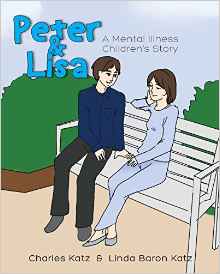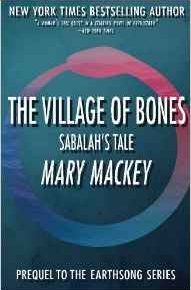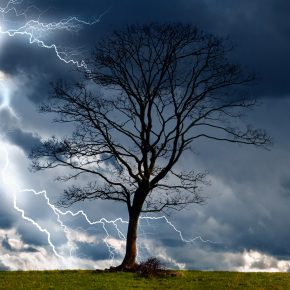Poetry from Patrick Ward
AUTUMN’S RAIN
There’s a certain time of year that the rain drops take on different colors.
Instead of falling from the sky, it falls from the trees.
Taking on the form of leaves, with the whistling wind,
driving them in the direction that it wants them to go.
Drifting away in a rapid dance,
they float into the middle of nowhere.
Until the rain of many colors.
reaches their final resting place.
*****
MINGLED GESTURES
The voices of careless words pollute the air.
Someone who is sensitive might happen to be there.
Among the crowd some gesture, while others stare.
Somewhere in the midst of the crowd is a hidden snare.
Tender hearts sometimes are misplaced.
Wounded gestures received in the memory can’t be replaced.
In the mind of the sensitive they’re hard to erase.
It’s difficult when confronted face to face.
Senseless gestures fill the soul.
As negative thoughts roll.
By the act of the will.
Gestures are removed, and joy is fulfilled.
*****
Elizabeth Hughes’ Book Periscope
The Village of Bones, by Mary Mackey, is a fantasy that is definitely a must read. it is the prequel to the Earthsong series. It is the story of Sabalah who is a young woman who desires more than anything to conceive a child. She is given a vision she will conceive a magical child; however, she must leave her village and everyone she loves there. So, Sabalah and her lover leave. What follows will keep you on the edge of your seats to the very last page. This is definitely Mary Mackey at her best.
Essay from Donal Mahoney
Synchronized Chaos August 2016: Storms of Change
(Photo above courtesy of the free digital archives of the New York Public Library, which you can access here. Just enter a search term—like “storm”—or terms, & see what comes up, it’s so fun!)
Good evening, this is guest editor Tony Longshanks LeTigre.
We are all disaster survivors at the moment of one kind or another, it seems. Someone asked once if had PTSD. I replied, “I’m alive, so yes.”
The sense of being caught up in an impending disaster seems common to people all over the world at the moment, & it is reflected in the submissions for Synchronized Chaos for this month. The only sensible thing to do seems to be to declare the theme of August 2016 Storms of Change. (I hope that doesn’t sound too presidential & platitudinous.) Painful storms brewing, evolution facing obstacles, growing unhappiness & backlash against unhappiness from those satisfied with the status quo or desirous of protecting their wealth, & their illth, to use a word suggested by English art critic & social critic John Ruskin. The submissions we’ve received for August are riddled with discontentment, primal screams of anguish & outrage growing louder, pressure building up to a major earthquake, a drumbeat in the distance growing louder, adverse branching futures from which a path will emerge (whether it likes it or not) in time, the sense of homelessness, of belonging nowhere, of being or being treated as an alien legally & otherwise, a eulogy that asks “impossible questions,” nature hallowed & nature besieged (whether we are nature’s besiegers or her fellow sufferers hard to say), our distraught predicament as humans seemingly mirrored by various other creatures across species lines.
At least, that’s what I see. Maybe I’m just being a paranoid drama queen or something.
Prerna Bakshi, an Indian writer, poet and activist based in Macao, sends us three poems pertaining to the partition of India / Punjab. “I belong to the family of refugees and have been deeply moved by what’s taking place in the world at the moment.”
Redolent with sadness is Christopher Bernard’s eulogy for Adelle Foley, a writer married to an accomplished poet. “At times like this / I ask impossible questions.” Bernard reviewed Adelle’s husband’s chapbook Eyes for Synchronized Chaos back in December 2013.
Developing the catastrophic theme, Hanoch Guy treats us to several poems about a series of natural disasters, including the tragicomic image, “A glacier sails away carrying a family of polar bears.”
Next we have a poem from Colin McCandless in alliterative / Beowulfian style about the “balancing act” between prey & predator.
We are always happy to have submissions from Jaylan Salah. This month she gives us an edifying interview with up-&-coming Australian actor Jackson Gallagher. “The Man Who Roamed the World.”
Yours truly offers an excerpt representing the first chapter of a new novel-in-progress, & a long, excellent review of a long, excellent book, Douglas Hofstadter’s 1980 Pulitzer Prize winner, Gödel, Escher, Bach.
Donal Mahoney has been asked by non-writers many times, “Why Did You Write That?” That forms the title of his essay in which he describes his habit of accumulating words until he has enough for a poem. “Next I try to determine what the poem, if anything, is trying to say. And that’s not always easy.”
Like determining the theme of Synchronized Chaos!
Michael Robinson offers a timely reminder that black lives matter with a series of short essays or prose poems. No shield exists here between the reader & savage realities of life as an oppressed person in a warlike scenario of feeling under attack at all times. “Have you witnessed the pain and heartbreak of black mothers when they learned that their son has been killed in the streets?” he asks, & cries out, “I don’t want to end up like Emmett Till,” an African-American teenager who was lynched on suspicion of flirting with a white woman in Mississippi just 61 years ago.
A trio of poems from returning contributor Joan Beebe find solace & nourishment in the sun, & bewilderment in those “times when life seems to overwhelm us” with a broken heart. She wakes up to a new day & faces the question, “Where is the joy that should be part of this day?”
I. W. Rollins sends poetry describing “a timid shrimp of a
middle aged man,” a young who “eats this love he doesn’t deserve,” & his memory of getting drunk for the first time, when “the bottle’s kiss was a kiss / the other boys couldn’t have, / it was all my own / just like my sadness.” He closes with a poem about being trapped by capitalism into a kind of pleasant slavery.
And we have poems from J. K. Durick examining that possibility “that Under all / this fuss and noise we live through, we walk around with, / We dedicate our days to, there may be nothing at all.”
Good luck weathering the storm, my literary comrades & fellow human beings.
Tony “LongShanks” LeTigre
Portland, OR, USA
August 2016
*****************************************************************************
Reminder for everyone that author Rui Carvalho and administrator Sara Rodriguez Arias invite all writers here to enter a literary contest.
Details, deadlines and entry form available through the link.
INTERNATIONAL LITERARY CONTEST: NATURE 2016: “Tales for the Ones in Love” in partnership with The Book Park & Arts & Literature. https://lnkd.in/dSgN7uq http://www.thebookpark.com
COMPETITION ADJUDICATOR: Janine Canan.
Janine graduated from Stanford University cum laude and from New York University School of Medicine. She is a passionate champion of women’s equality, and a devoted follower of Mata Amritanandamayi.
http://www.janinecanan.com/
http://www.janinecanan.com/pages/order_books.html
Poetry from J. K. Durick
Poetry from Prerna Bakshi
What’s the name of your pind?
(First published in The Ofi Press)
He asks me which pind
do I belong to?
Confused, I respond by telling him
the names of my grandfather’s and grandmother’s village.
He interjects, her’s not necessary. Your belonging, your identity, your pind is traced through the pind of your father and his father and so on, you see.
I say nothing, and just nod.In the blink of an eye, my grandmother’s history was deemed irrelevant. Erased.
History belongs to victors, they say.
Clearly, she had lost.
Her past, torn
like it was an unwanted page from the book of history.
Her clung together memories
got flushed down the toilet like a clump of hair stuck in the comb.
What is her pind, then?
What is her home country?
Or is she a traveling soul?
A wandering Sufi?
An escaped soldier?
An absconded convict?
A fugitive?
A refugee?
If she had no home to claim as her own,
which borders did she cross then?
To what extent did she even cross any, if at all?
What was her supposed ‘home’?
Or was there even any?




